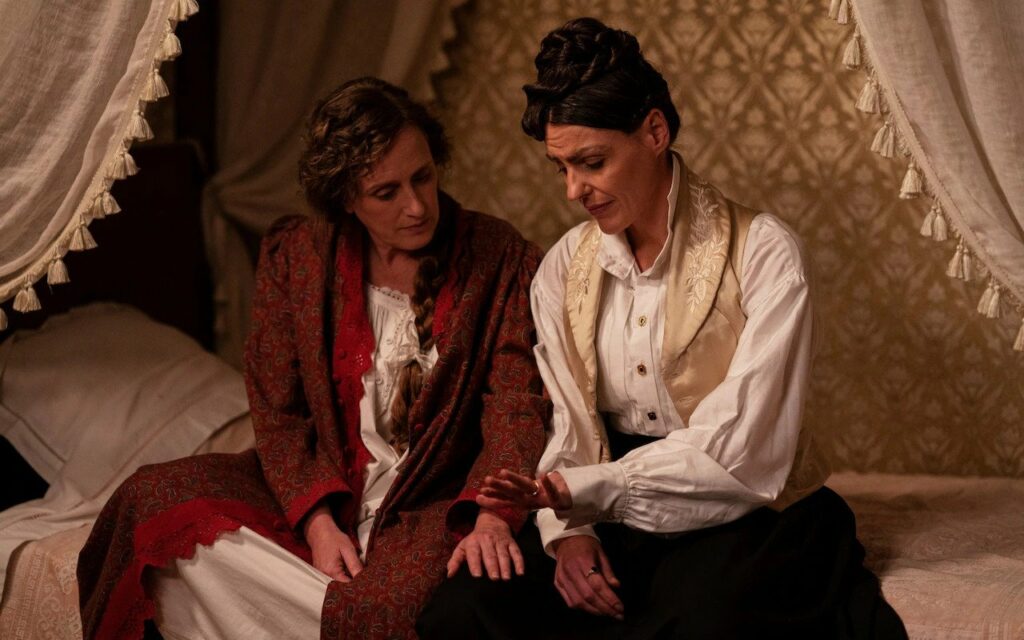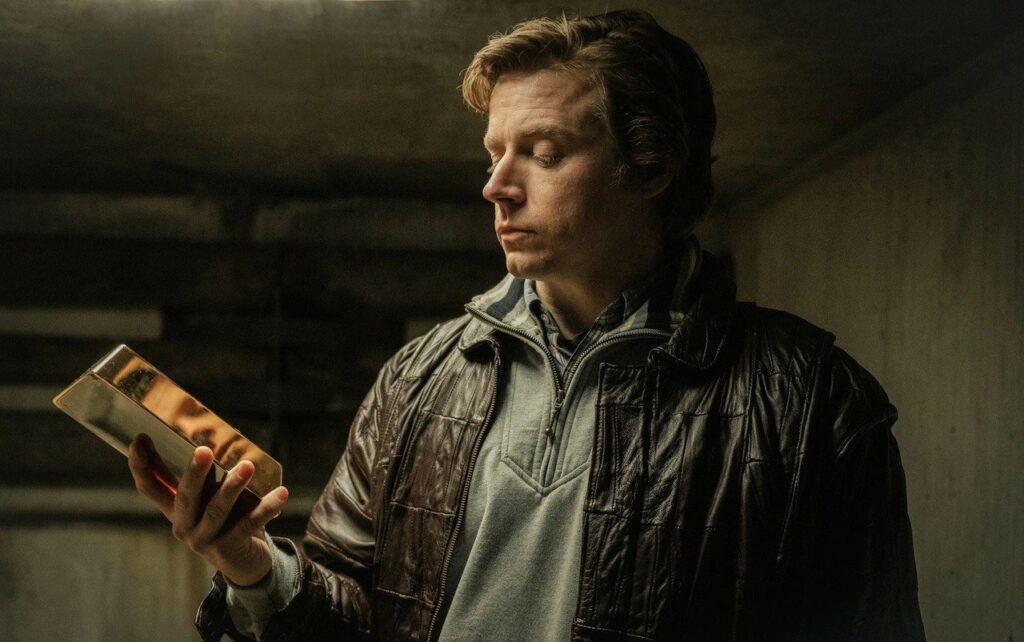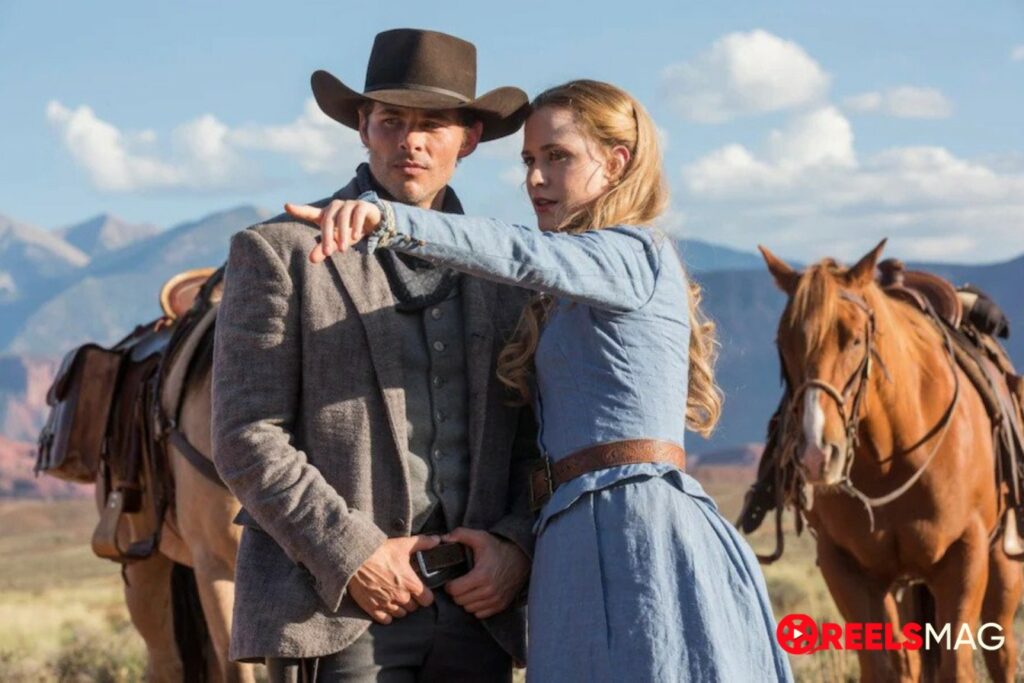Listening in on conversations in bars in Soho is not as enjoyable as it used to be, and on Wednesday, the person overhearing couldn’t help but hear the following exchange: “It’s chaos, my friend. Amazon has rejected it and suggested trying theatrical. I don’t know who to approach now, and even Apple is not interested in purchasing it. It’s going to be a lengthy process, and it’s uncertain whether the people involved will still be available.”
We are now confronting the most challenging winter for television that has been recorded, despite production company individuals spending a significant portion of 2022 confidently reassuring each other that the recession would not impact them due to the supposed “golden age of content” where everyone is purchasing.
The year 2023 has seen an influx of cancellations, with several shows getting the axe. Netflix, for instance, has put an end to various series, including the mystery sci-fi show 1899, Dead End: Paranormal Park, Inside Job, The Chair, and Uncoupled. Additionally, HBO has cancelled Doom Patrol and Titans, while Disney+ has axed The Mysterious Benedict Society, Reboot, and Kindred.
If some of these shows fall under the category of “what show was that again?” it may partially explain the issue. A lot of these programs, such as 1899 (which had high ratings on Netflix), The Chair, and Inside Job, were cancelled after just one or two seasons because there is an excess of content available.
An anonymous source at Netflix reveals, “I could name around five shows that we’ve had to cancel in the last month. They were all excellent shows, but the general public probably hadn’t heard of any of them. You need a substantial amount of publicity and a high level of viewer interest at an early stage; otherwise, the show will fail to gain traction and eventually get cancelled. It’s disappointing because there is still some excellent content available that hasn’t been seen by many people.”

In addition to the previously mentioned cancellations, we have also seen some significant shows such as Westworld, the Gossip Girl reboot, Snowpiercer, The Mosquito Coast, Pennyworth, and Let the Right One In come to an end. Furthermore, Warner Brothers scrapped the Batgirl movie, which was intended for a small screen release, even after it had been filmed and was in post-production, categorizing it as a tax write-off.
In the United Kingdom, the situation is less dramatic, although a higher than usual number of TV shows are nearing their end – some due to natural reasons, while others due to poor performance. For instance, ITV’s Endeavour is being retired by its creators after ten years, which is considered a reasonable period for a show to run. Meanwhile, Spitting Image is being removed from BritBox after only two seasons. Bradley Walsh has taken responsibility for ending The Larkins, citing a lack of time to film a third season. Additionally, other shows such as Kate & Koji, The Good Karma Hospital, The Long Call, Gentleman Jack, and The Time Traveller’s Wife have lost the support of US networks.
Although Gentleman Jack has not been officially cancelled, the decision by HBO to withdraw funding makes it improbable for the BBC to continue producing the show. Sally Wainwright, the creator, has already mentioned that she would not be interested in continuing the series if it cannot maintain the same production values, and that she would have to find a new global streaming partner. Nonetheless, the economics of the “golden age of television” are evolving rapidly.

Ed Waller, the editorial director of trade magazine C21 Media, explains that the production of drama series is becoming increasingly expensive, particularly in the UK. The cost of talent is skyrocketing, and there is a shortage of skilled personnel behind the camera. Moreover, post-Brexit, European crews are hesitant to come to the UK, resulting in a shortage of people to produce good drama. While the industry is initiating training programs to address this issue, it will take a couple of years to upskill new personnel. As a result, there is expected to be a shift towards unscripted shows, and reality TV is making a comeback, except for Autumnwatch, which was cancelled at the start of the year.
The situation may be more serious than it appears as streaming companies in the US are facing a negative response from Wall Street, and online giants such as Facebook and YouTube have shifted their focus from investing in original programming. Disney has recently cut its film and television budget by $3 billion and eliminated 7,000 jobs.
According to Ed Waller, editorial director of C21 Media, British TV cannot sustain the current level of drama production without financial support from overseas. For example, The Gold, a BBC drama, received funding from the US streaming service Paramount+ and is available worldwide on the platform. Similarly, A Spy Among Friends, broadcast on ITV, is a Sony production. The UK has benefited significantly from the streaming wars.

With the financial squeeze in the entertainment industry, the pressing question is whether there will be enough resources to continue creating top-quality drama. However, broadcasters remain optimistic, claiming that not all streamers have been affected. While Disney+, HBO, and Netflix have reduced their number of commissions due to financial pressures, Amazon, Apple, and Paramount continue with their programming. The upcoming show Django, a grand Western on Sky Atlantic, is receiving additional funding from Canal+ in Europe. Nevertheless, Hollywood’s financial issues are mounting, with the Writers Guild of America, the Directors Guild of America, and the Screen Actors Guild all bargaining for higher residuals, which could drive up program costs. Consequently, studios that previously kept their content for their own streamers, such as Disney, which reserved Star Wars shows solely for Disney+, are now licensing their content to others.
As studios such as Warner, NBC, Disney and Sony seek to increase revenue by selling licenses to their surviving shows, they may flood Britain with their programming while scaling back deals with UK drama producers. On one hand, this could mean that your favorite show could move from a streaming service such as Disney+ to the BBC. That might seem like a sweet deal, and you could even cancel your subscription. But on the other hand, this shift could result in less space and money for UK shows. In addition, it may be difficult for creators like Sally Wainwright to delay production for years to achieve the quality she wants. Time is a precious resource and in short supply. Therefore, if you have a show you love, it’s important to let broadcasters know.
Source: The Telegraph

